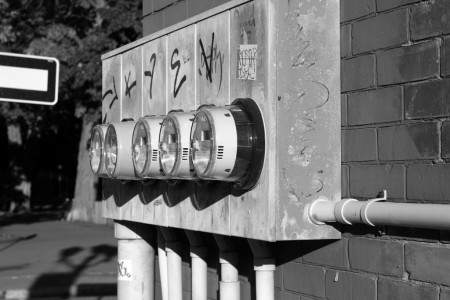
The Globe and Mail is full of coverage of a ‘landmark’ new report, considering whether and how Canada could meet the stated greenhouse gas reductions of the current government (20% below 2006 levels by 2020, 60-70% below by 2050). The report was paid for by the Toronto Dominion Bank and compiled by the Pembina Institute and David Suzuki Foundation. Economic modelling was done by M.K. Jaccard and Associates Inc, Canada’s ubiquitous non-governmental providers of projections on climate plans.
The report includes estimates of what the GDP cost of meeting the government’s targets would be, for each province. Overall, the cost is estimated at 1.5% of GDP in 2020. Alberta would be the most affected, with an economy 8.5% smaller than it would be in a scenario with new restrictions on emissions. Saskatchewan is projected at -2.8% and B.C at -2.5%. Ontario would actually be 0.9% richer with regulation, while Quebec would be 0.3% poorer. Given the risks associated with climate change, such an investment seems appropriate. That is especially true when you recognize that we will inevitably have to abandon fossil fuels anyhow.
Of course, much depends on the precise methodology used to compile the report. It isn’t clear how the government’s Regulatory Framework would actually operate in practice – for instance, which compliance options firms would choose to employ, and how much of an effect that would have. The plan also assumes that carbon capture and storage (CCS) will rapidly emerge as an effective and affordable technology, though it isn’t quite as dependent on that outcome as Alberta’s even more worrisome climate plan. In an editorial by Jeffrey Simpson, he claims that:
The government must know its policies will fail. But if the Conservatives expect people can be fooled or will tune out because they don’t care or the issue’s too complicated, why not?
Another editorial argues that the targets were set without a plan for achieving them established. Very disappointingly, it then goes on to argue that since meeting Canada’s targets would involve “unacceptable damage to Canada’s economy and national unity,” the targets should be further loosened. What this ignores is the critical issue of dealing with climate change. If Canada and the world fail to adopt effective mitigation policies, the alternative isn’t going to be unity and prosperity amidst ever-higher greenhouse gas concentrations and temperatures. The future of Canadian and global prosperity depends on maintaining a climate that is compatible with human prosperity. Furthermore, it seems absurd to say that growth of 8.5% below business-as-usual is a terrifically awful thing to inflict on Alberta. That’s the kind of impact that might arise as the result of some modest global economic blip or disruption in fossil fuel markets. Only in this case, the cost would be borne in order to help Canada make a credible start on the critical path to a low-carbon economy.
The ethics of letting Alberta and the oil sands off the hook are also highly dubious. People don’t have the fundamental right to keep doing what they have been, even when it becomes overwhelmingly obvious that their actions are harming others. Aside from those suffering now from the air and water pollution associated with rampant oil sands development, there is the key issue of the defenceless and innocent members of future generations who will suffer as the result of these emissions. Indeed, extracting and burning just 10% of the oil sands resource would release 15 billion tonnes of carbon into the atmosphere, a quantity sufficient to have a significant temperature effect in and of itself. In addition, continued failure to act on the part of Canada makes it less likely that a strong international agreement will emerge. Given the importance of reaching such an agreement soon, and setting the world on the path to decarbonization, more foot-dragging from Canada is shameful and inappropriate.
Among others, I have long argued that the targets lacked a credible plan for implementation. The government seems to be banking on the fact that they won’t be around in 2020 or 2050 to be held to account. As such, nearer term targets – such as those in the 10:10 campaign – could be usefully adopted in Canada. Anything else leaves too much of a gap between promises and mechanisms of accountability.
The full report is available online (PDF).




